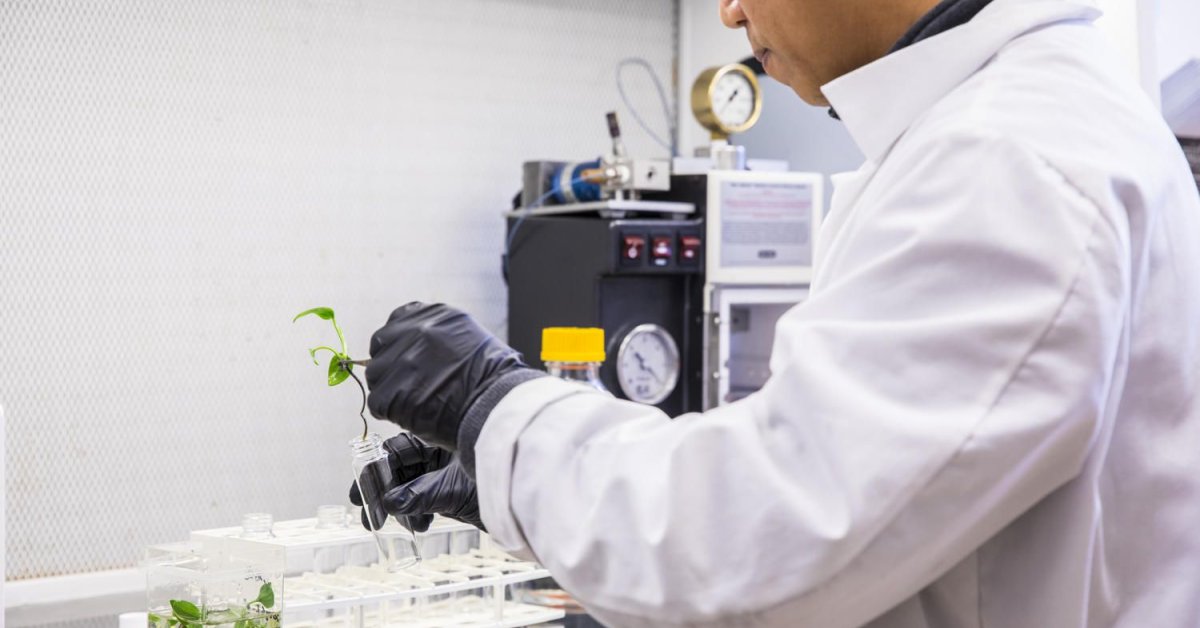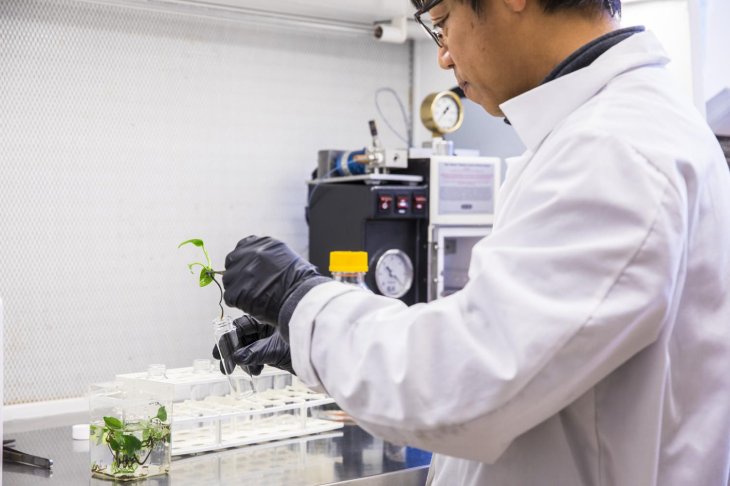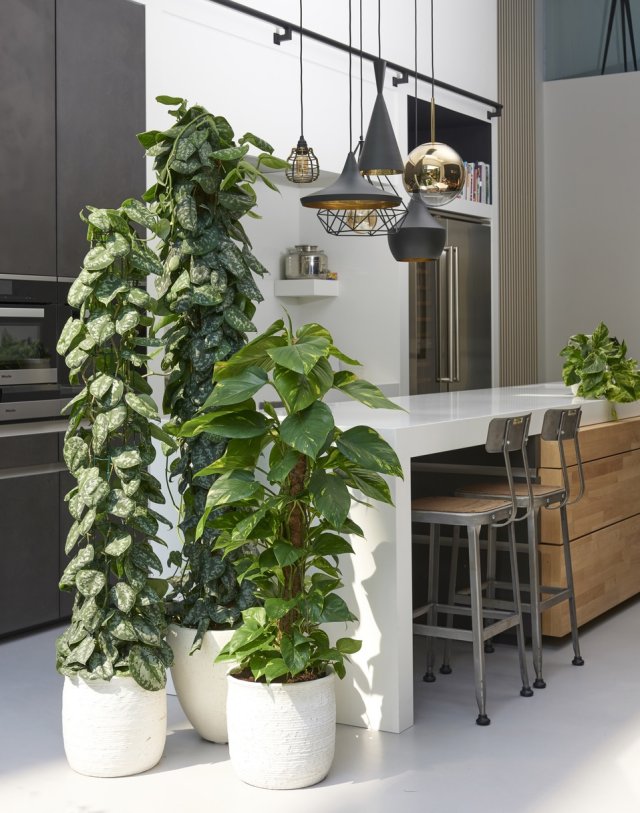House Plant That Can Scrub Contaminants From Your House
Indira Datta - Jan 01, 2019

Washington scientists have been working on improving the environmental cleanup feature of a common household plant, called the pothos ivy (epipremnum aureum).
- We Just Experienced The Hottest January Ever Since 11,700 Years Ago
- To Save Marine Life, This 17-Year-Old Has Created The First 3D-Printed Coral Reef In India
- "Iron Man" Robert Downey Jr. Wants To Use AI And Robots To Clean Up Earth
What is unique about plants is that it not only adds beauty to your indoor but also cleans the surrounding air. However, because our environment is increasingly dusty and polluted, the plants in your house can't afford to clean up all those dirt and harmful chemicals.
Washington scientists have been working on improving the environmental cleanup feature of a typical household plant which is known as the pothos ivy (epipremnum aureum). The research process is described in detail in this week's Environmental Science & Technology.

Usually, this plant can remove carcinogens such as benzene and chloroform in the air. Through the work of researchers at UoW, it is now able to remove 2E1 - a protein synthesis. This protein transforms these damaging compounds and turns them into substances that help the plant grow. The pothos ivy is chosen because it is capable of living well indoors in many different conditions.

Accordingly, scientists put either chloroform gas or benzene to glass tubes with non-modified plants as well as modified plants in them. They then collected results about the level of change of each substance after 11 days.
For unmodified plants, it does not cause any significant effect on the concentration of the pollutants. On the other hand, the modified plant has a substantial impact on the amount of gas inside the tube. After only 2 to 3 days, the concentration of chloroform decreased by 82% and disappeared entirely after the 6th day. Plus, the level of benzene also impressively reduced by 75% after 8 days. This is an extremely positive result, showing the feasibility of putting into application in the real environment.
The researchers also plan to add into the pothos ivy a protein, giving it the ability to absorb another pollutant compound that often exists in the home. This toxic compound for the body is formaldehyde that is frequently found in wooden cabinets and wooden floors.
Featured Stories

Features - Jan 29, 2026
Permanently Deleting Your Instagram Account: A Complete Step-by-Step Tutorial

Features - Jul 01, 2025
What Are The Fastest Passenger Vehicles Ever Created?

Features - Jun 25, 2025
Japan Hydrogen Breakthrough: Scientists Crack the Clean Energy Code with...

ICT News - Jun 25, 2025
AI Intimidation Tactics: CEOs Turn Flawed Technology Into Employee Fear Machine

Review - Jun 25, 2025
Windows 11 Problems: Is Microsoft's "Best" OS Actually Getting Worse?

Features - Jun 22, 2025
Telegram Founder Pavel Durov Plans to Split $14 Billion Fortune Among 106 Children

ICT News - Jun 22, 2025
Neuralink Telepathy Chip Enables Quadriplegic Rob Greiner to Control Games with...

Features - Jun 21, 2025
This Over $100 Bottle Has Nothing But Fresh Air Inside

Features - Jun 18, 2025
Best Mobile VPN Apps for Gaming 2025: Complete Guide

Features - Jun 18, 2025
A Math Formula Tells Us How Long Everything Will Live
Read more

ICT News- Feb 18, 2026
Google's Project Toscana: Elevating Pixel Face Unlock to Rival Apple's Face ID
As the smartphone landscape evolves, Google's push toward superior face unlock technology underscores its ambition to close the gap with Apple in user security and convenience.

ICT News- Feb 19, 2026
Escalating Costs for NVIDIA RTX 50 Series GPUs: RTX 5090 Tops $5,000, RTX 5060 Ti Closes in on RTX 5070 Pricing
As the RTX 50 series continues to push boundaries in gaming and AI, these price trends raise questions about accessibility for average gamers.

Mobile- Feb 17, 2026
Anticipating the Samsung Galaxy S26 and S26+: Key Rumors and Specs
The Samsung Galaxy S26 series is on the horizon, sparking excitement among tech enthusiasts.
Comments
Sort by Newest | Popular